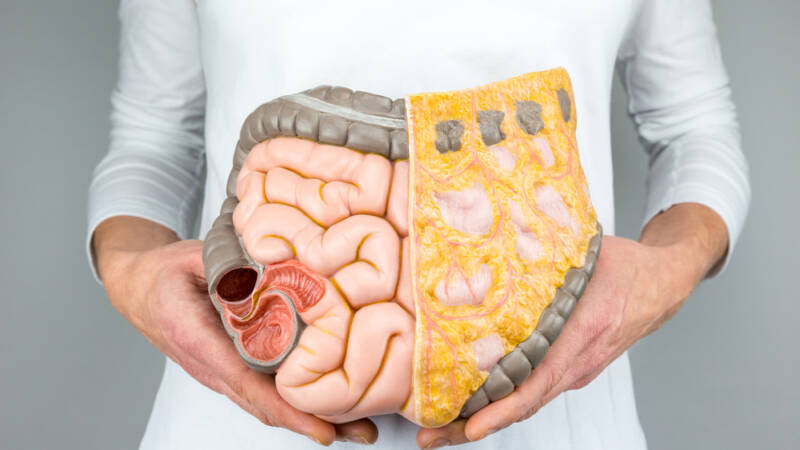Understanding Colon Cancer: Signs, Symptoms and Treatments

Colon cancer is predicted to affect over 104,000 adult Americans in 2021 alone, with approximately 53,200 fatalities from the disease. The third most common cancer, the lifetime risk of developing colon cancer is 1 in 23 or a 4.3 percent chance for males and 1 in 25 or a 4 percent chance for females.
Colon cancer is often referred to as a colorectal cancer, as it is grouped with cancers of the rectum. The colon is the last part of the digestive tract, known as the large intestine. Typical cases begin with noncancerous growths called polyps. Over time, polyp cells can mutate and develop into cancerous growths. Regular colon cancer screening is recommended in older adults and those with other risk factors, so that polyps can be detected and removed before they become cancerous.
Types of Colon Cancer
The most common type of colon cancer is adenocarcinoma, which begins in the epithelial cells that form the lining of the gut. Less prevalent types include:
- Carcinoid tumors – Cancer of the intestine’s hormone-producing cells
- Lymphoma – Cancer of the lymph nodes, which can start in the colon
- Gastrointestinal stromal tumors – Cancer of ‘soft tissues’ such as fat, muscles, or blood vessels
All colon cancers can be categorized as either localized (contained to the colon), regional (spread to nearby tissues), or distant (spread to distant body parts like the lungs or liver).
Early Signs and Symptoms
Early symptoms of the disease are usually mild and so they often go unnoticed. These include:
- Blood in the stool or rectal bleeding
- Unusual bowel behavior, including diarrhea, constipation, and a change in stool consistency
- Abdominal pain
- Jaundice
- Abdominal bloating
- Unexplained weight loss
- Extreme fatigue
- Persistent feeling of needing to have a bowel movement that isn’t eased by having one
A person’s risk of developing colon cancer increases if they eat a diet high in red meat, consume too much alcohol, smoke, don’t exercise, or are obese. Additionally, people with a history of inflammatory bowel syndrome or whose parents have had colon cancer are at a greater risk. If you have multiple risk factors, monitor yourself for any symptoms or talk to your doctor if you’re concerned.
Treatment Options
What treatment or combination of treatments a doctor recommends depends on the type, location and stage of the cancer. Common treatment options include:
- Surgery – The most common treatment for early stage colon cancer; removes the cancerous section of the colon (known as a colostomy).
- Chemotherapy – Medicine taken orally or intravenously to destroy tumor cells; sometimes given before surgery to shrink the tumor slightly.
- Radiation therapy – Beams of high-strength radiation that target tumor cells.
- Immunotherapy – A medicinal treatment designed to support the body’s immune system in fighting the colon cancer
Talk to your doctor immediately if you are experiencing symptoms that you believe may be related to colon cancer. Catching the disease early greatly improves a person’s prognosis, with a 90 percent five-year survival rate for patients with early stage localized colon cancer.